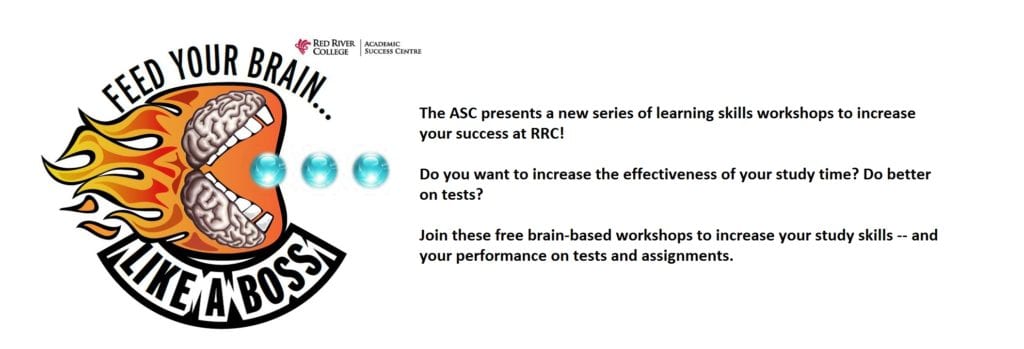Brain Bites – Instructor Resources
Hello RRC Instructors!
The ASC’s Brain Bites workshop series aims to bring the latest research in learning and memory to RRC through providing interactive activities in class and at lunch.
Most of the skills covered are based on research shared through www.learningscientists.org.
Below are ASC slides, handouts and other resources for you to use in your classroom. Each Workshop Plan plan lists the Academic Coach who created the workshop. Feel free to reach out to ask about how to best deliver the workshop, or to invite the Coach into your classroom to work with your class.
ASC Brain Bites Resources: these workshops are approximately 50 minutes in length and include at least one activity to practice the target skill. One workshop will be posted each week during the month of January and February.
Retrieval Practice – workshop plan
Learning Scientist Resources: these slides can be delivered in about 10 minutes of class time. They are ideal if you have limited time to raise awareness about these research-based learning skills. Please refer students to the Brain Bites workshop series for a chance to actively apply the skills covered in these slides.
Retrieval Practice – learning scientists slides
Elaboration – learning scientists slides



